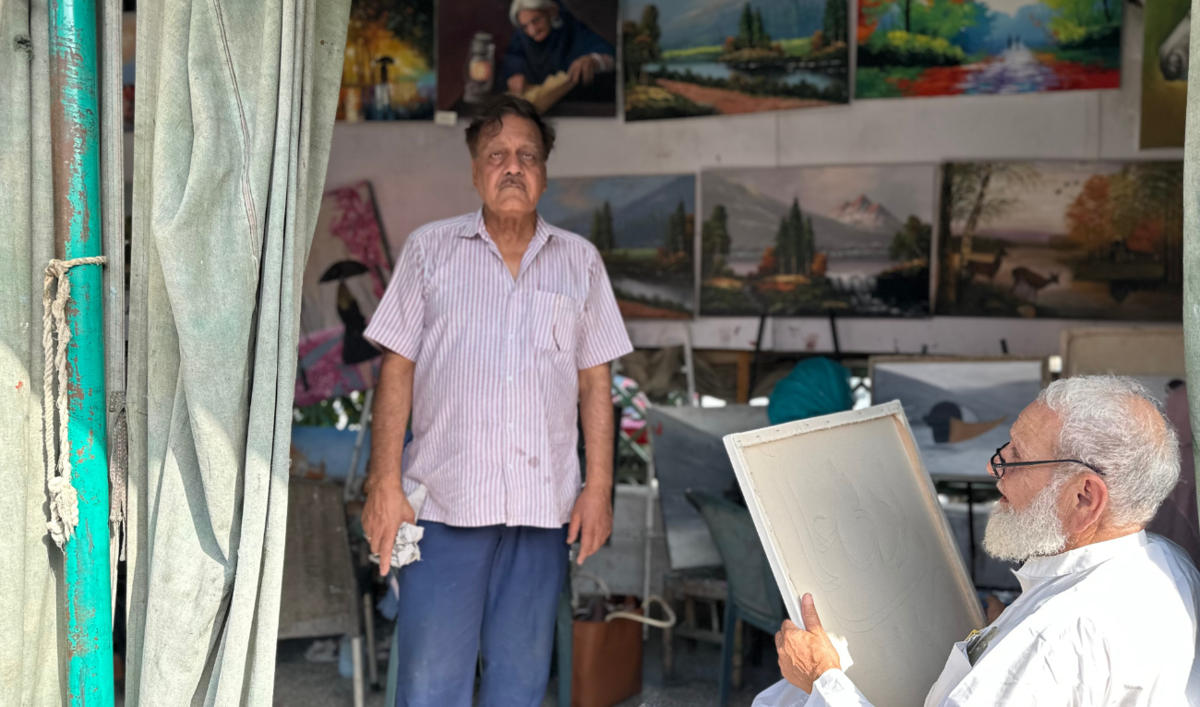ISLAMABAD: Pakistani Prime Minister Shehbaz Sharif on Monday called on international powers to ensure a lasting and immediate ceasefire in Gaza, warning that ÔÇ£posterity will not forgive usÔÇØ if IsraelÔÇÖs military offensive in the besieged enclave continued.
Fierce Israeli attacks are ongoing, including most recently on a school building where dozens of Palestinians sheltering inside were killed.
With food still critically short after a nearly three-month blockade, Washington says it is working to restore a ceasefire more than 19 months into the war, but progress is elusive.
ÔÇ£We condemn the untold stories of miseries and atrocities in the land of Gaza where more than 50,000 Palestinians have been martyred and as I speak this story of bloodbath continues,ÔÇØ Sharif said in Tehran at a joint press conference with IranÔÇÖs President Masoud Pezeshkian.
ÔÇ£ItÔÇÖs high time that international community uses its influence to bring ceasefire and lasting ceasefire in that part of the world, otherwise posterity will not forgive us.ÔÇØ
Israel launched its latest air and ground war in Gaza after a cross-border attack by the Hamas group on October 7, 2023, which killed 1,200 people by Israeli tallies, with 251 hostages abducted into Gaza. The war has killed more than 53,900 Palestinians since, according to Gaza health authorities, and devastated the coastal strip. 
The entire 2.1 million population of Gaza is facing prolonged food shortages, with nearly half a million people in a catastrophic situation of hunger, acute malnutrition, starvation, illness and death, according to the World Health Organization. Food security groups say more than 93 percent of children in Gaza, about 930,000, are at risk of famine. Using satellite data, the United Nations estimated in February that 69 percent of the structures in Gaza have been damaged or destroyed.
With most of GazaÔÇÖs two million population squeezed into an ever narrowing zone on the coast and in the area around the southern city of Khan Younis by IsraelÔÇÖs military operation, international pressure to get aid in quickly has ratcheted up.
IsraelÔÇÖs initial blockade on Gaza, immediately following the October 7 attacks, prevented the entry of humanitarian aid for several weeks. As the war progressed, aid has been allowed in limited quantities.
Israel has recently announced that a new aid system, sponsored by the United States and run by private contractors, will soon begin operations from four distribution centers in the south of Gaza, but many details of how the system will work remain unclear. The UN has already said it will not work with the new system, which it says will leave aid distribution conditional on IsraelÔÇÖs political and military aims.
Israel says its forces will only provide security for the centers and will not distribute aid themselves.
Even as the aid has begun to slowly trickle in, the Israeli military has continued its intensified ground and air operation launched last week, which Prime Minister Benjamin Netanyahu said would end with Israel taking full control of the Gaza Strip.


















